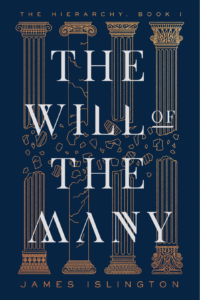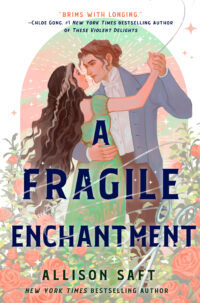To summary or not to summary? That is the question!
![]() When you review a book, to you write your own summary, or borrow the publisher’s one?
When you review a book, to you write your own summary, or borrow the publisher’s one?
And when you read reviews on blogs, do you prefer to read the publisher’s one, or the blogger’s own summary?
My very first reviews had very short summaries, if any, that I wrote as I reviewed the books. Those were very hard to come down with for me, and I came to the conclusion that it would be easier to simply borrow the summary already offered on the book’s cover. As writing reviews became slightly easier, and seeing that many of my favorite bloggers tend to write their own summaries, I started wondering : Should I write my own summaries? Are my reviews suffering from borrowing a summary that I have simply copy-pasted along my review?
Last week, I heard one of the BBAW panelists mention that one of her criteria for judging a blog’s reviews originality was whether or not the reviewer wrote her/his own summary of the book. I thought it was an interesting point! I always thought bloggers wrote their own summaries because they used this as an occasion to put in their own view of the story ; the originality factor had never crossed my mind, really. Thinking of it though, it might be true : reading the same summary over and over, from blog to blog, might be a bit boring. Or maybe it just makes things simpler?
Personally, I don’t mind bloggers writing their own summaries, as long as they don’t reveal too much of the story. As I said, many of my favorite bloggers summarize the books they read in their own words, and that’s fine by me! But in the past, I have also read summaries that revealed all the story from A to Z, with no surprises left for me to discover. On the other hand, even some publisher’s summarizes reveal too much or not enough, forcing you to come up with your own version of the story.
I’m just curious, really! I think both ways can be good or bad, but I would love to hear your own opinions on the subject. I am constantly working on my blog, trying to improve it, and I have been wondering whether or not I should start summarizing on my own.
So, how big a part do the summarizes play in your appreciation of a book review?










I always write my own summary. I can maybe think of one instance when I didn’t. It’s usually what takes me the longest amount of time to write as I struggle to find the right balance between sharing something of interest without revealing any major spoilers.
I think most blogs that I read also summarize as well. I usually won’t read a summary of any kind that is too detailed and when I see that is the case I will skim ahead. I think the change in voice is jarring for me to go from a book blurb to the blogger’s voice. I will usually skip over a description from the back cover.
Me too. Before I used to write my own summaries. But now, I get lazier and lazier. 😀 Plus, it’s really hard to make your own summary without giving too much of the story away.
It doesn’t really matter to me if the summary was just copied from the publisher’s. After all, it is the review itself that counts. 🙂
I think summaries would be a very subjective criteria for judging. I don’t mind either unless there are no spoilers. Usually I do both.
I normally use my own summaries. I feel that it helps me remember the book if I have to try and get across the beginning effectively. I don’t know how well I do, but I do try. I also think that the back covers give too much away sometimes, so writing my own brief summary is a way to correct that.
If the book is complex, or it’s been a while since I read it, or if it’s not a review copy and I’m feeling lazy, then I will use the printed summary. Depends how I’m feeling!
I like writing my own. I’m always careful not to give away too much of the story, though – I’m very paranoid about spoilers! But I don’t mind others using publisher’s summaries as long as the source is identified.
I write my own and try my best to never give anything away.
Wow. That’s a really good point, Kay. To be honest, I’ve usually copied the summary from the back of the book (and always credited it) because my blog’s reviews were something to relax into. I review for other websites ‘professionally’ and have to write my own summary for those so I looked at my blog reviews as something I didn’t have to worry about as much.
But that’s a really good point about seeing other people’s interpretations through how they write out the plot. I’ll have to remember that one. 🙂 I hate it when I pick up a book and the publisher gives away the whole story on the back cover. It’s so frustrating and you think, “Why???”
I tend to write my own unless the book is too complicated or spoilery for me to do so. Like for instance, I always copy the jacket cover description for Jasper Fforde’s Thursday Next books. This isn’t just because those books are so hard to describe, but because it’s obvious that Fforde takes time out to be very creative with his descriptive summaries of books. I do credit the source I grab the summary from in the rare case that I use someone else’s words, of course.
But mostly, I do my own. I figure if I’m writing my own reviews, I should be using my own words, unless I’m quoting a passage from the books. I try not to give away spoilers, but if I have to, I always warn my readers in advance.
I like to write my own summary, because in a lot of instances I wind up being more concise than the back cover of a book, and I also like to put my own spin on things – sometimes a back cover was misleading, sometimes it gives away too much – writing my own summary, I get to control exactly what gets put out there! And I generally don’t find it too hard figuring out where to draw the line in terms of what information to share and what to hold back… I try to stick to a 3-sentence limit, because in the end, the plot will be discovered by those who read the book themselves!
I actually prefer other bloggers to also write their own summaries. As you said, it’s a bit boring when you keep stumbling across the exact same words, and I feel like one of the best parts of blogging is hearing everyone’s own voice. If you use the publisher’s description, I don’t get to hear from you! Also, if I want to read the publisher’s description, I can get that on any myriad of sites where I can buy the book. Also, publisher’s summaries are too long! Maybe this is bad of me, but I tend to skip those parts of people’s posts and just jump to the part where they actually start discussing the novel!
I don’t know, maybe it does require more effort to write your own summary, but at the end of the day I don’t think any of us feel the desire to put the least amount of effort into our blogs… I mean, if any of us really felt that way, why would we do it?
Okay so I’m the odd one out here. I used to do my own, but I swapped over a while ago and use Fantastic Fiction. Their summaries are great and as I’m not very concise they are better than my own. That way I can waffle on a bit after I tell readers what the book is about.
I write my own summaries, too, mostly because it helps me remember all the salient points of the story! Sometimes my muddled brain can’t hold it all in. 🙂 I often find the publishers’ descriptions to be sorely lacking, too, and hate that — like you mentioned — they either reveal too much or not enough.
As long as they’re spoiler-free, I like reading original summaries — but I don’t skip over the publishers’ descriptions, if that’s what’s available. Basically, I’m cool either way!
Some books are definitely harder to write summaries for than others, but I like writing my own, because I think that the elements the back cover stresses are not always the elements I thought were important. I go by the 1/3 rule… if it happened within roughly the first 1/3 of the book, it’s not a spoiler, it’s a set-up.
I really prefer for people to include summaries with their reviews, because there are so many books out there that I don’t have the foggiest idea what 99% of them are about! (And although I prefer hand-written summaries, publisher-written ones are fine too.) On my own blog, though, I keep the summary distinct from the review, so that people who know what the book’s about already or who are uber-afraid of spoilers can skip directly to my thoughts.
I am new to reviewing books, but chose to use the summary from the book. What you think may be appropriate to talk about in writing your own summary, you may find it bothers another. It is so easy to spoil the plot, or even a character, and without even realizing it. I do believe you can give quite a valid opinion and review, expressing all the necessary guidelines of a good review, without writing your own summary. Plus the companies I am dealing with prefer 200 words or less. Writing your own summary may consist of more than 200 words. It’s not that I don’t have what it takes to write my own, it’s just already there. Why not use what the Writer already wrote? I have already got kudos for my reviews. So much so, that I sold a person to read a set of books! I must be doing okay then.
I’m a short-summary gal. I actually try to sum it up in two to three sentences. . .enough to give folks a flavor of the book but not too much to put people off. I like imagining my reviews as tasting notes rather than full-blown reviews.
I think everyone should do what they’re comfortable with and what works for them. I was a panelist for BBAW and I didn’t count down for using the publisher’s summary.
I don’t ever read the publisher’s summaries on blogs. I just skip down to the reviewer’s personal comments. It is quite hard to write good summaries at times though – depending on the book.
I used to write my own but found it too hard to be concise and not give away any spoilers. Not to mention now my daughter and work takes up most of my time and it’s hard enough to get time in to read and write my reviews. So I typically go with the book jacket blurb.
I’m like Jemima–I don’t read publisher’s summaries on blogs, I’ll just skip down to the blogger’s comments. I reading the blog for original content, and I can get the publisher’s summary anywhere.
Personally, I love trying to summarize a book in my reviews! That’s where all the fun and creativity of the review comes in for me. It is difficult not to include spoilers; but a lot of times I’ll include things that only make sense if you’ve read the book. I’m not sure if that’s good or bad, though….
Wow, thank you so much everyone for all your answers! It was extremely interesting to read your thoughts on the subject – I hadn’t expected this many opinions! But that’s a very good thing, of course! I’d love to answer you all individually, but I’m planning a “recap” post on the subject next week, all due to your help. Thank you! 😀
I use the publisher’s summary when I’m lazy, or when I get behind with blogging and it’s been awhile since I read the book and the details are fuzzy. I don’t like to, but I end up doing it maybe 50% of the time.
And sometimes, it helps and acts as a prompt for the rest of what I want to say.
Crap–I hate when there are comments I want to read and don’t have the time to. 🙁 This is a really interesting subject to me since I HATE writing summaries but I do try to use my own unless I’m feeling lazy. Usually I try to keep it to a paragraph, max. When I’m reading others’ blogs, I don’t usually read summaries. At all. I don’t like any type of spoilers and I’m more interested in what the person liked/didn’t like anyway. So, if you write really really really lengthy summaries with no opinion, I’m less likely to read your posts. (Big YOU, not you you). 🙂
So, whether publisher or your own summary, I don’t care. But keep em short and spoiler free people!!
It doesn’t matter to me whether a blogger writes their own or uses the publisher’s. I used to use the publishers, but I’m going to start trying to do more of my own. One reason is that sometimes the publishers have really long ones, and I just want it brief.
Good question, and it looks like the comments are evenly split.
I use the publisher’s summary, which I call the “back of the book blurb” and show it in an italicized font, differentiating when my review begins. If the publisher’s summary runs long, or has spoilers, I’ll edit it.
BTW, I was on a judging panel and didn’t deduct if a publisher’s summary was used.
Publisher summaries are very biased and will always paint the story in a better light than what it might be. If somebody uses a summary that they did not write my biggest peeve is that they don’t credit where they took it. Is it their’s, the publisher’s, amazon’s, etc.
Every once in awhile I will use the publisher summary (like maybe a dozen out of 300 reviews I’ve done this) but I prefer to write my own summaries. I do feel that it is more original content.
I do personally summarize in my own works (as or right now), but I have been tempted by the possibility of simply copying the publisher’s summary. For me, summarizing the book is the hardest part. I want to make sure to give a good feel of the book but I don’t want to give too much away. It’s a difficult task to figure out where to draw the line. That being said, I do not think that using the publisher’s summary really detracts from a great review. Inevitably, you add bits of summary into your review to flush out the details that the publisher might have left out. In then end, I feel like a good review can begin with either type of summary. Sorry that I didn’t really take a side and stick to it, but this isn’t something I feel really makes or breaks a review. There’s so much more that can make up for an inadequate initial summary (at least in my mind).